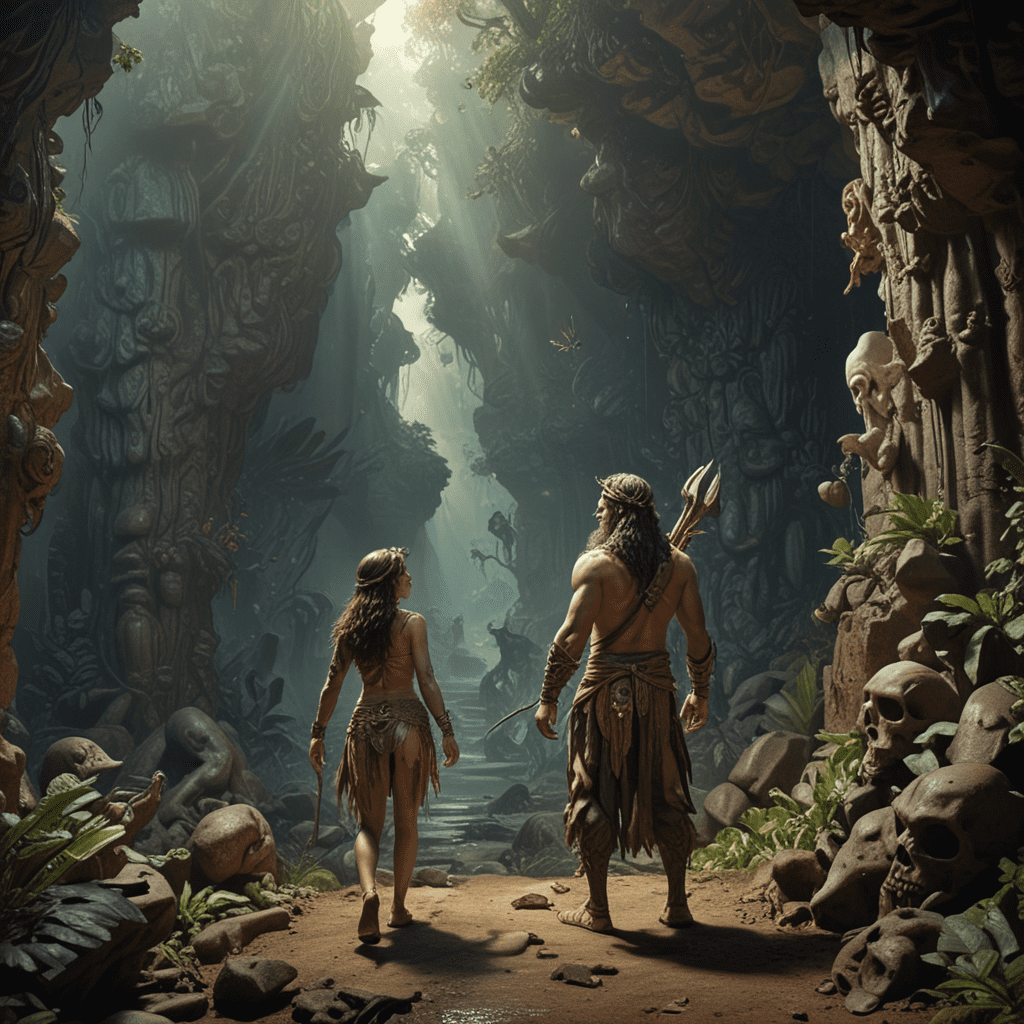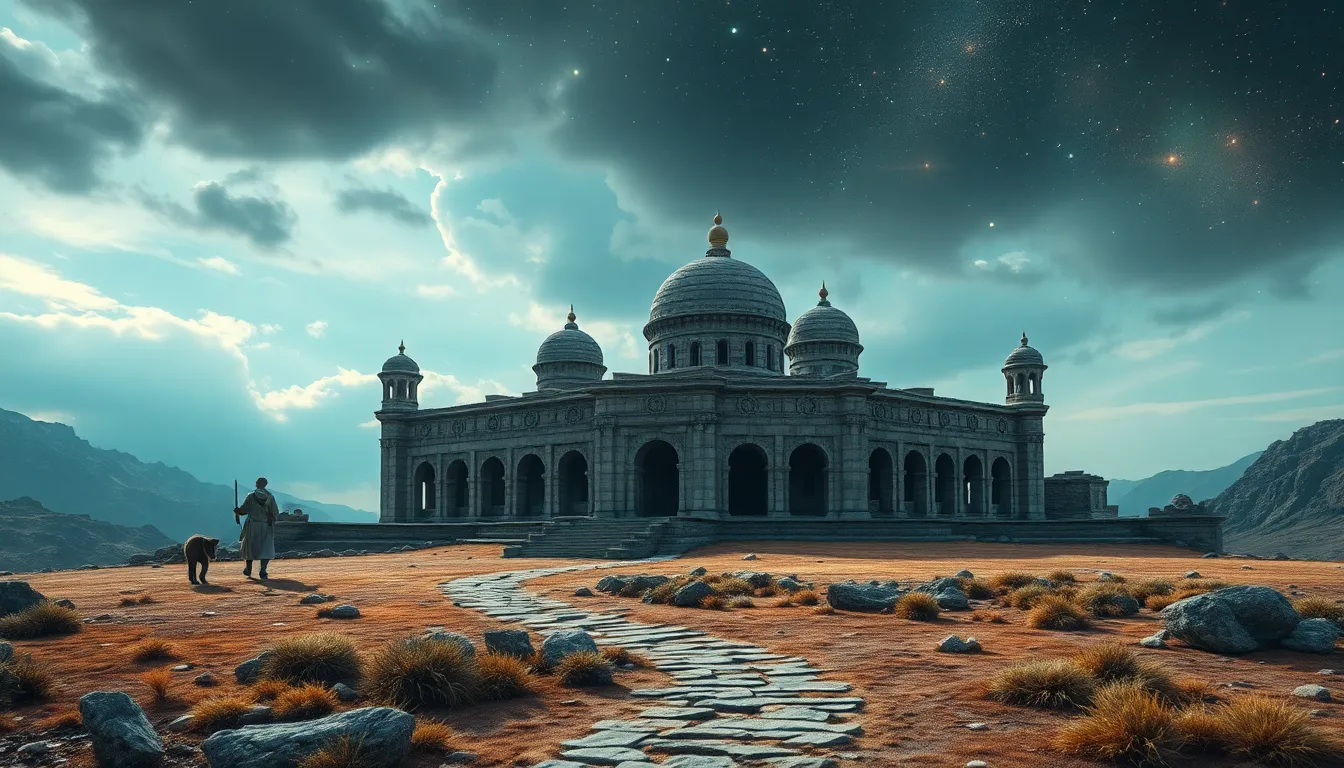The Intriguing Deities of African Mythology
I. Introduction: The Tapestry of African Mythology
African mythology is a captivating tapestry woven with a myriad of vibrant deities, each embodying distinct aspects of the natural world, human society, and the cosmos. These divinities have played a pivotal role in shaping African cultures, influencing everything from religious beliefs to artistic traditions. From the Yoruba pantheon to the Igbo creation myth, the deities of African mythology continue to fascinate and inspire generations.
II. Olorun: The Supreme Deity of the Yoruba
Olorun, the supreme deity of the Yoruba people of West Africa, reigns as the creator of the universe and the father of all other gods. His name translates to "owner of the heavens," reflecting his boundless power and authority. Olorun is believed to be omnipresent, omniscient, and benevolent, watching over his people and guiding their destinies. He is often depicted as an old man with a long white beard, clad in flowing robes.
III. Chuku: The God of Creation in Igbo Culture
In Igbo mythology, Chuku is the supreme creator god, responsible for bringing the universe into existence. He is believed to be the source of all life and the ultimate arbiter of human affairs. Chuku is often associated with the sky and thunder, and is said to reside in the heavens. He is typically depicted as a wise and all-knowing elder, with a long white beard and a staff in his hand.
IV. Mawu and Lisa: The Mother of the Yoruba Gods
Mawu and Lisa are twin deities who represent the primordial forces of nature in Yoruba mythology. Mawu, the female aspect, embodies the moon and femininity, while Lisa, the male aspect, represents the sun and masculinity. Together, they are believed to have created the world and all living beings. Mawu and Lisa are often depicted as two intertwined figures, symbolizing the balance and harmony of the universe.
V. Oya: The Goddess of Storms and Thunder
Oya, the Yoruba goddess of storms and thunder, is a powerful and revered deity. She is believed to control the winds, rains, and lightning, and is often invoked during times of drought or flood. Oya is also associated with fertility and war, and is often depicted as a fierce warrior goddess. She is typically portrayed as a young woman with dark skin and piercing eyes, wielding a thunderbolt in her hand.
VI. Ogun: The God of Iron and Warfare
Ogun, the Yoruba deity of iron and warfare, is a powerful and respected god. He is believed to have invented ironworking and is the patron god of blacksmiths. Ogun is also associated with war and hunting, and is often depicted as a fierce warrior wielding a sword or a bow and arrow. He is typically portrayed as a young man with a muscular physique and a stern expression.
VII. Orunmila: The God of Divination
Orunmila, the Yoruba deity of divination, is a wise and benevolent god who is believed to have created the art of Ifa divination. Ifa divination is a complex system of divination that uses 16 palm nuts to answer questions and provide guidance on important matters. Orunmila is often depicted as an old man with a long white beard, sitting beneath a sacred tree and casting his Ifa divination tray.
VIII. Sango: The God of Thunder and Lightning
Sango, the Yoruba deity of thunder and lightning, is a powerful and feared god. He is believed to control the forces of nature and is often invoked during storms. Sango is also associated with war and justice, and is often depicted as a young man wielding a thunderbolt. He is typically portrayed as having a fiery red face and wearing a crown of thunderbolts.
IX. Osun: The Goddess of Fertility and the River
Osun, the Yoruba goddess of fertility and the river, is a beautiful and benevolent goddess. She is believed to control the flow of rivers and is often invoked for fertility and prosperity. Osun is also associated with love and beauty, and is often depicted as a young woman with a graceful figure and a radiant smile. She is typically portrayed as wearing a flowing gown and carrying a water vessel.
X. Conclusion: The Enduring Legacy of African Divinities
The deities of African mythology continue to play a significant role in the cultures and traditions of African people today. They are revered as powerful beings who watch over and guide their people. The stories and legends surrounding these deities provide valuable insights into the history, values, and beliefs of African societies. The enduring legacy of African divinities is a testament to their profound impact on the lives and imaginations of generations of African people.
FAQ:
- What are the main characteristics of Olorun?
- Omnipresent, omniscient, and benevolent
- Creator of the universe and the father of all other gods
- Supreme deity of the Yoruba people
- Who is Chuku and what is his role in Igbo mythology?
- Supreme creator god
- Responsible for bringing the universe into existence
- Source of all life and the ultimate arbiter of human affairs
- What do Mawu and Lisa represent?
- Mawu (female): moon and femininity
- Lisa (male): sun and masculinity
- Primordial forces of nature
- Creators of the world and all living beings
- What are the powers of Oya?
- Goddess of storms and thunder
- Controls winds, rains, and lightning
- Associated with fertility and war
- Powerful warrior goddess
- What is Ogun known for in Yoruba mythology?
- Inventor of ironworking and patron god of blacksmiths
- God of iron and warfare
- Fierce warrior wielding a sword or a bow and arrow
- What is the significance of Orunmila in African mythology?
- Wise and benevolent god of divination
- Creator of the Ifa divination system
- Uses 16 palm nuts to answer questions and provide guidance
- What does Sango represent?
- God of thunder and lightning
- Controls the forces of nature
- Associated with war and justice
- What is Osun the goddess of?
- Fertility and the river
- Controls the flow of rivers
- Associated with love and beauty
- How are the deities of African mythology relevant today?
- Continue to play a significant role in African cultures and traditions
- Revered as powerful beings who watch over and guide their people
- Their stories and legends provide insights into African history, values, and beliefs


